

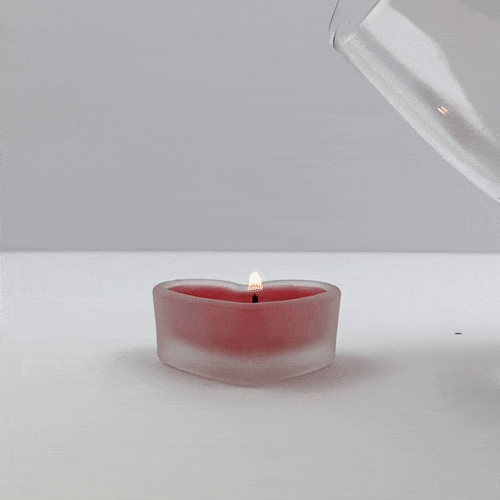
Did you know that fire extinguishers often contain carbon dioxide (CO2)—the same gas we exhale, that plants use in photosynthesis, and that's even found in soda? When we use a fire extinguisher or blow out a candle, we're replacing the oxygen around the fire with CO2. Fires need oxygen to burn, and when they run out of oxygen, they go out!
In this experiment, we're going to see how we can put our knowledge of chemical reactions to practical use. In the Baking Powder & Baking Soda experiment, we saw that vinegar and baking soda combine to produce a large amount of CO2 gas. We're going to use this same reaction to create a simple fire extinguisher.
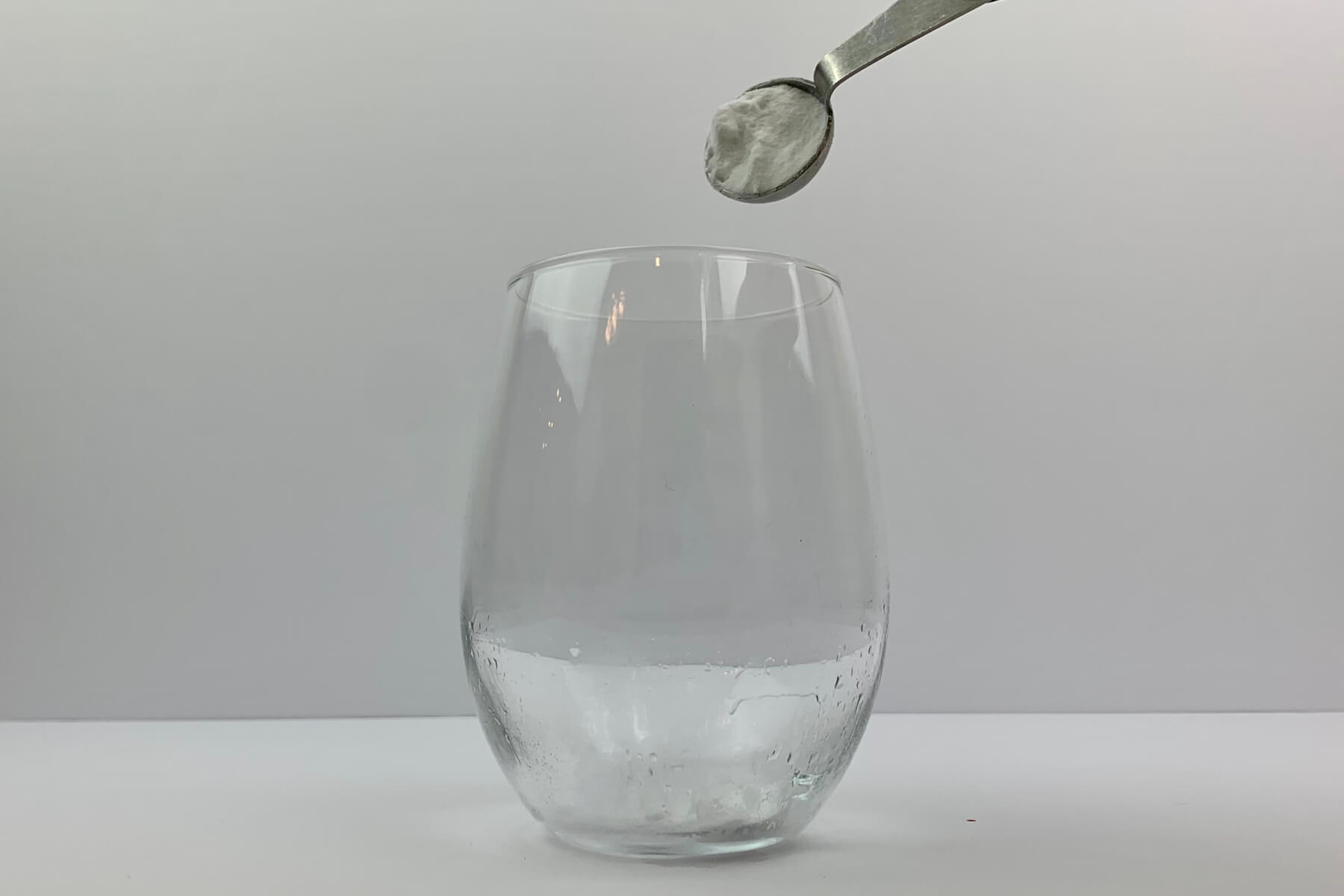
Place the drinking glass somewhere that can afford to get a little wet (this is about to get messy!) and scoop in the baking soda.
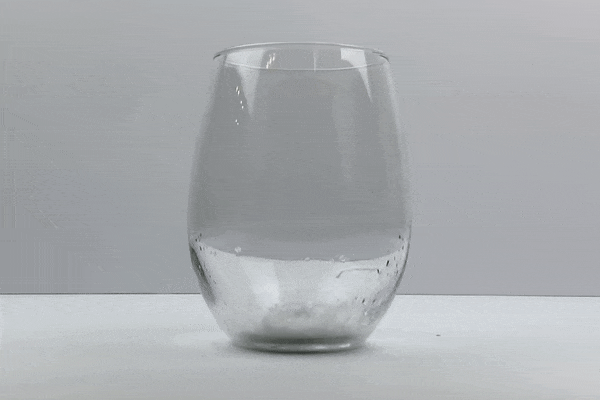
Pour the vinegar into the glass and watch as CO2 gas starts to bubble up. Your glass may overflow a little--that's okay, just wait for the reaction to slow down a little before starting the next step.
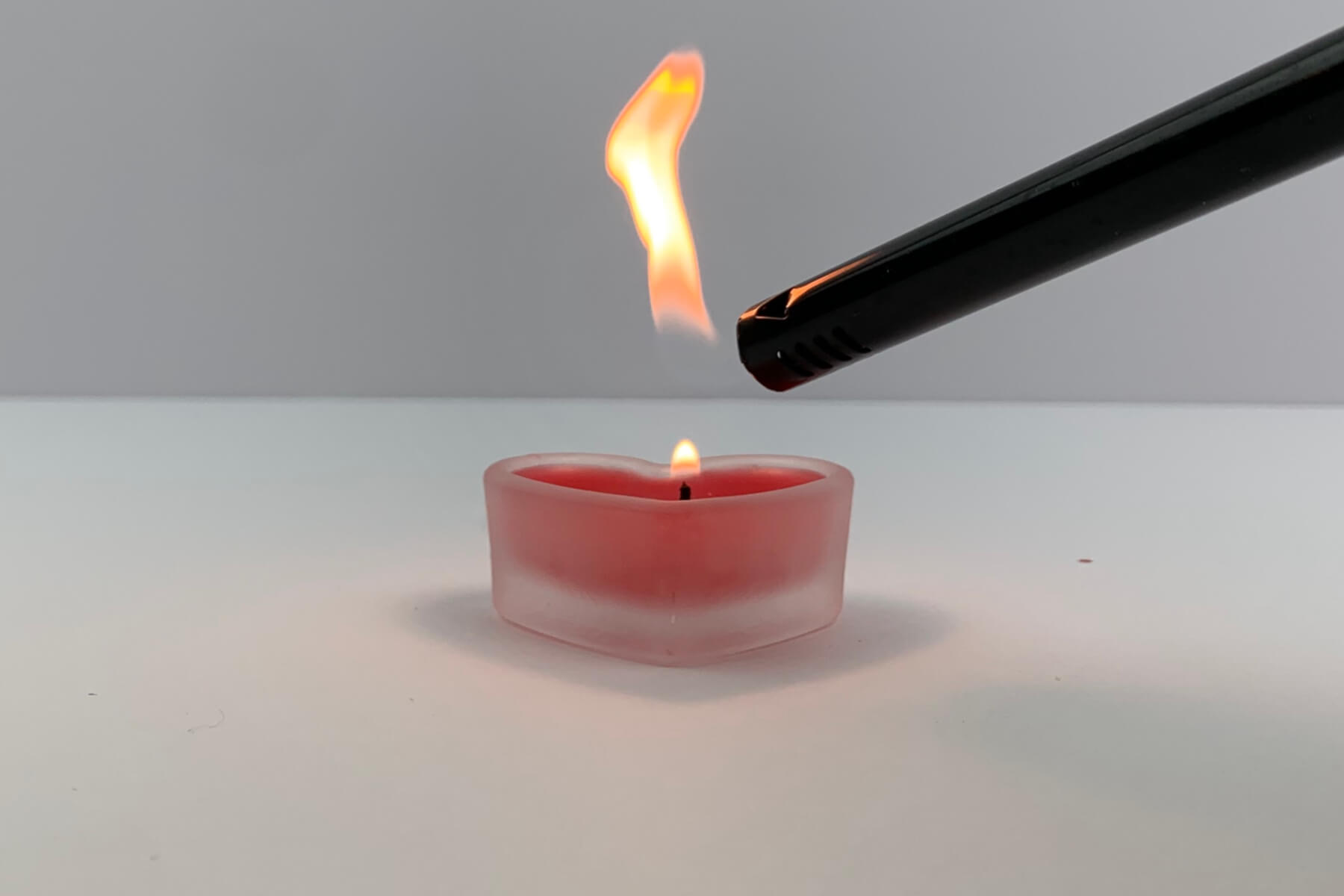
Place the tea light in a safe place, away from anything flammable, and ask an adult to light it for you with the match.
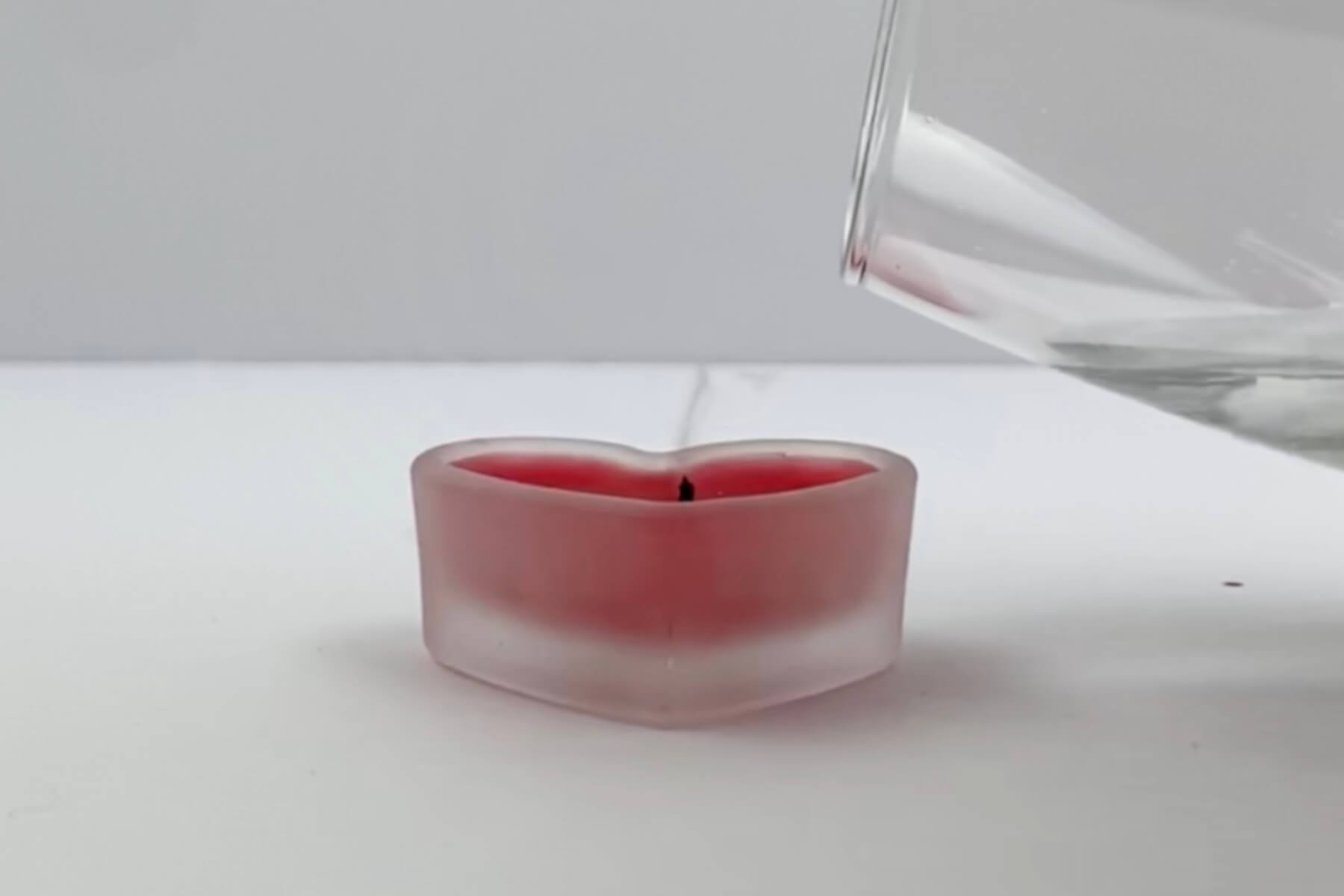
Once the vinegar and baking soda reaction has calmed down a little, take the glass from the sink, being careful to hold it upright. The CO2 gas is in the cup, resting right above the liquid. "Pour" the gas (being careful not to pour out the liquid too) onto the tea light and watch as your scientific fire extinguisher puts out the flame.
You must be logged in to comment.